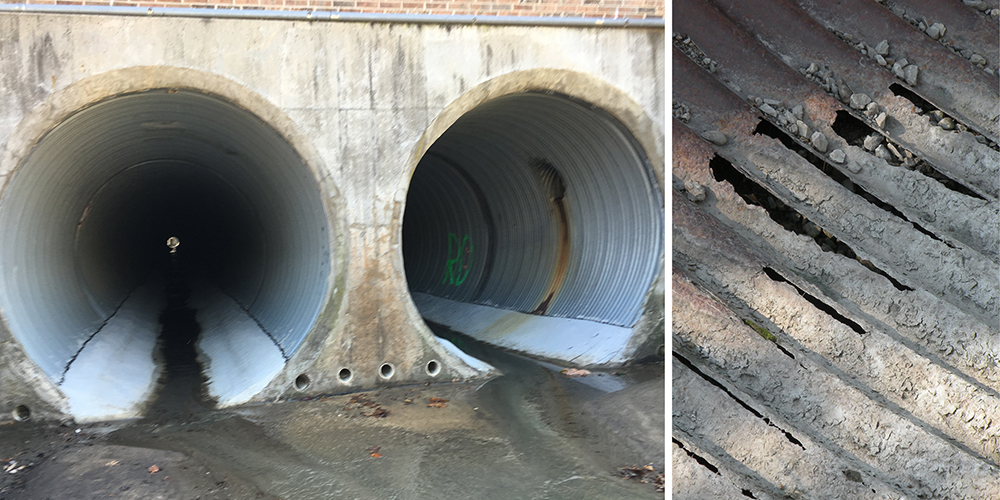SMP Shifting Focus to Fund More Large Watershed and System Maintenance Projects
Posted on Wednesday, February 20th, 2019 by Affinis CorpIn Stormwater, tagged in Tags: smac, smp, stormwater management, stormwater management advisory council, stormwater management program

Johnson County has been working on a strategic planning effort to update their Stormwater Management Program (SMP). Since 1990, the SMP has been very successful in helping Johnson County communities address local street and structure flooding issues. However, many larger flooding issues still remain, due to their high cost and the challenges that come with coordinating matching funds between multiple cities.
In addition, member cities have expressed a need for system maintenance funding assistance (system condition assessments, repair or replacement of failing infrastructure, etc.), as aging infrastructure has reached the end of its design life. The current SMP does not fund system maintenance activities.
The Stormwater Management Advisory Council (SMAC) has recently adopted changes to how the SMP is structured in an effort to tackle these large, watershed projects, as well as fund system maintenance activities. In the past, the SMP provided 75 percent of funding towards projects that solved flooding issues, requiring communities to supply the remaining 25 percent. While this program has been very successful addressing local flooding issues in a single city, larger multi-jurisdictional flooding issues have not been addressed.
The new SMP will continue to fund local flooding projects, although now at a 50/50 cost split, but a bigger change involves the reorganization of SMP from the current structure of individual cities bringing projects to the full county-wide SMAC, to watershed-based organizations made up of city representatives identifying, prioritizing, and advocating for projects within the watershed boundaries. This change will allow more collaboration between cities in a given watershed and will increase the likelihood of large watershed projects being proposed and funded. SMP will fund these large watershed projects at 100 percent. The county has yet to define the criteria for what makes a watershed project, but this definition is coming soon. If you know of large watershed type projects in your community, gather the available history on the project and be active in the watershed organizations to bring this project forward.
Another new SMP component is funding for system maintenance projects that repair or replace failing stormwater infrastructure. Diverting a portion of SMP funds to system maintenance projects is a proactive measure that will repair or replace failing stormwater infrastructure before it fails. It is the goal of the county to integrate stormwater system assessment data into their AIMS online mapping tool, which would allow them to compare and prioritize system replacement dollars across the entire county.
The county is working towards having system maintenance funding available for 2020. However, to take advantage of the revised program, cities will need to collect baseline standard data on their stormwater infrastructure before system maintenance projects can be submitted. In order to be eligible for system maintenance funding, cities that do not have stormwater system data that meets the county’s standard should take the following steps:
- Collect missing system data in GIS.
- Perform a video assessment of pipe condition, following the process outlined in the county’s recently completed Strategic Asset Management Plan (SAMP). The SMP offers funding assistance to perform this condition assessment.
- Based on the assessment process, projects are given a risk score to allow them to be ranked against other projects.
- If the risk score meets the minimum threshold, apply for system maintenance funding.
Collecting this information takes time. If you need to gather system assessment data, our stormwater team recommends beginning soon, so you will have the data on hand when you are ready to move forward and funding becomes available.